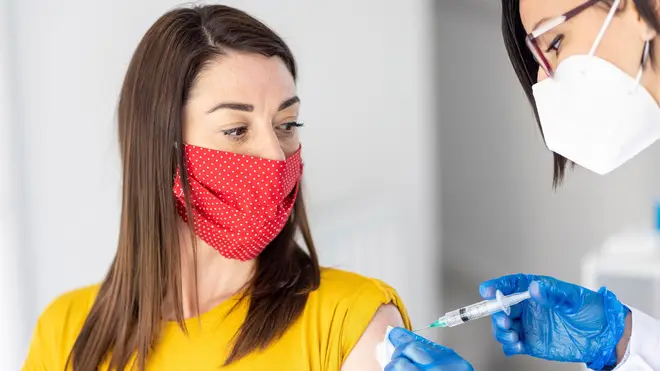
Tonight with Andrew Marr 6pm - 7pm
1 November 2021, 15:53

Unvaccinated people are 32 times more likely to die with Covid-19 than people who have received both doses, new research suggests.
There was "consistently lower" rate of death from coronavirus in those who had had both jabs compared with those who had had one or no vaccinations, according to the Office for National Statistics (ONS).
The research used age-standardised mortality rates, which take into account differences in age and population size to allow comparisons between different vaccination groups.
READ MORE: Booster jabs now offered without appointments in England
READ MORE: US spies admit they may never know if Covid leaked from Wuhan lab in new report
The mortality rate among unvaccinated people was 849.7 per 100,000 from January 2 and September 24, 2021.
For people at least 21 days after a second dose of vaccine, the rate was just 26.2 per 100,000.
For those less than 21 days after their first dose of vaccine, the mortality rate was estimated at 192.4 per 100,000, while for those at least 21 days after a first jab the rate was lower, at 105.3.

Gordon Brown: Rich countries shouldn't hoard vaccines
Responding to the figures, Dr Peter English, former consultant in communicable disease control, said: "These are among the best available data on the effectiveness of vaccines at preventing the most serious adverse outcome of Covid-19.
"Vaccines are not 100% effective, so some people will get ill or die despite having been vaccinated. As the proportion of the population that is vaccinated increases, the number of deaths in people who have been vaccinated will increase.
"The important message here is that vaccination is highly effective against death from Covid-19. You are 32 times less likely to die if you have been fully vaccinated than if you are unvaccinated; and a single dose also provides some (although less than two doses) protection."